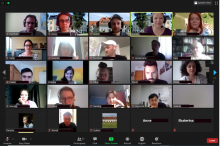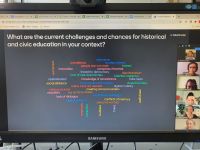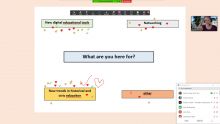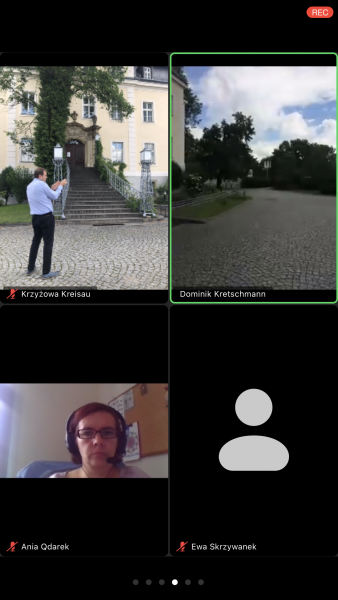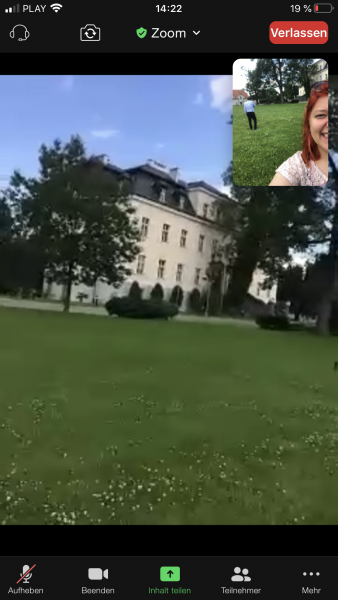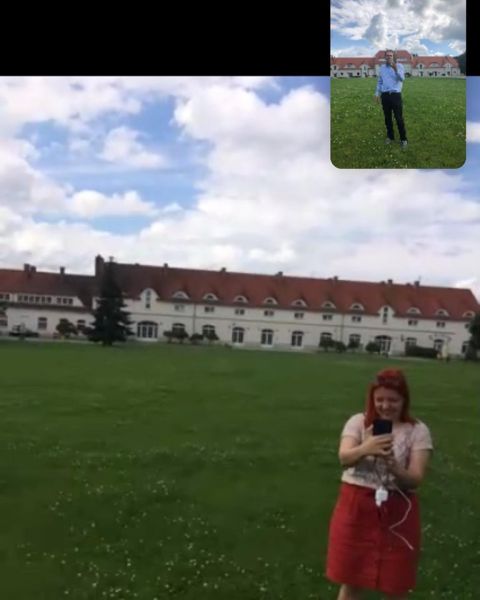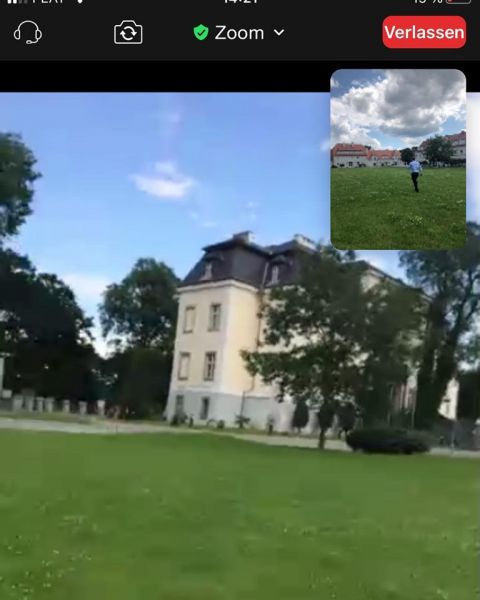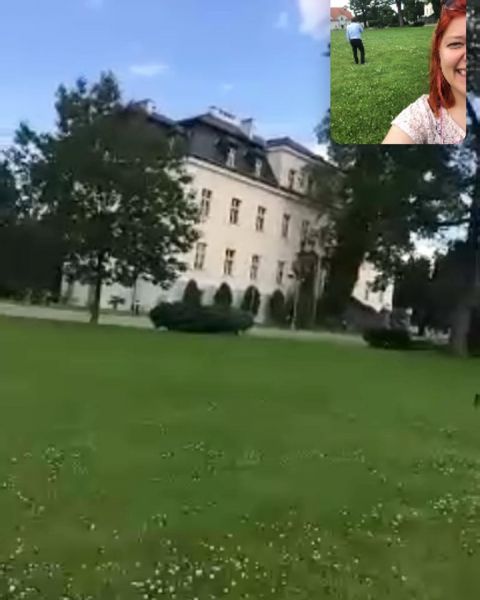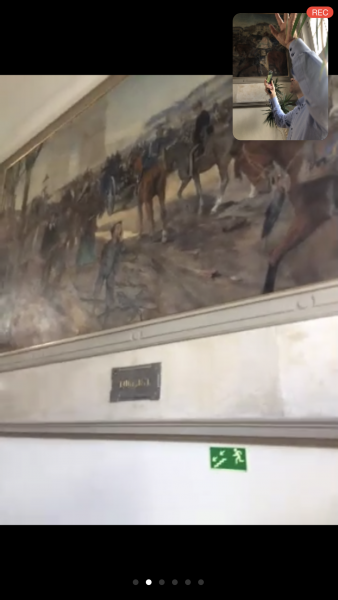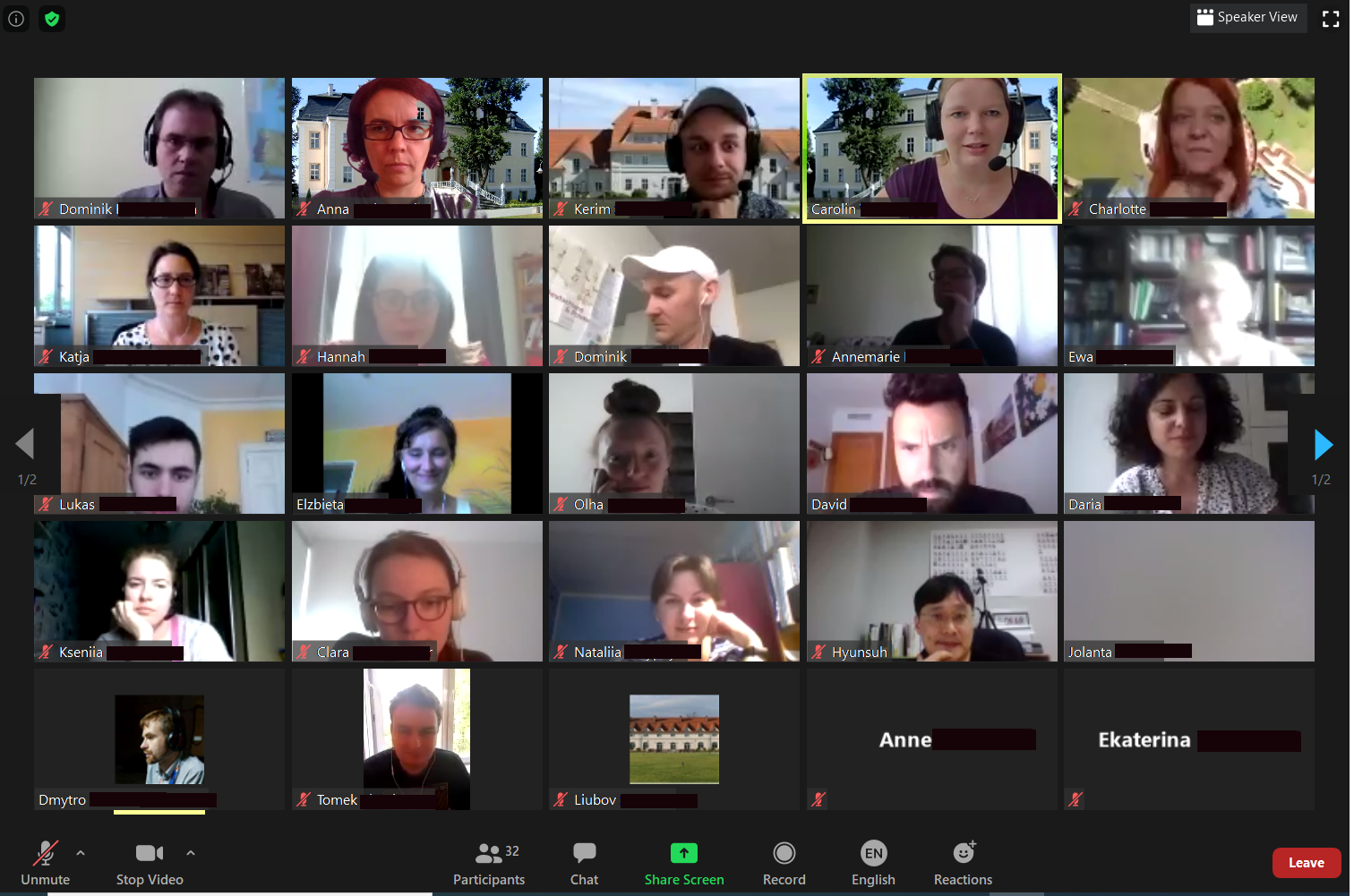
On 25 and 26 June 2020, the first joint online "non-conference" organized by the Kreisau-Initiative e.V. and Krzyżowa Foundation team took place. This "non-conference" is a format called BarCamp originating from the USA and initiated in the IT environment (and the name does not come from the word "bar" but from the IT slang).
Our BarCamp online was entitled "(Hi)Storytelling: My History, Your History, Our History" because we were interested in the approach to modern and virtual forms of historical education in different countries. Initially, our invitation was addressed to educators and educators dealing with history and civic education from Poland, Germany and Ukraine, but eventually the participants included individuals from Russia, the Netherlands, Spain and South Korea.
The organization of the whole undertaking brought many challenges - first of all, it was the first joint event between the Kreisau-Initiative Association and the Krzyżowa Foundation organized completely online. The whole project team, consisting of 7 people, met many times, but only virtually. It was a very interesting and fruitful experience, although at times strenuous. And why 7 people organized a two-day event? Because, contrary to appearances, organizing such an online project, i.e. organizing the whole virtual infrastructure, which we are not used to, which we had to learn from the beginning, which is much more difficult to grasp with the senses and which needs an incredible divisibility of attention and multitasking, requires great cooperation and good division of responsibilities. However, everything was well planned and the cooperation between us brought the expected results.
The participants, which are the main creators and creators of BarCampu content, did not disappoint. As the organisers, we outlined only the main area of interest, but they filled it with specific issues and topics.
We started with a storm of associations and discussions on current challenges and opportunities for historical and civic education in the world.
Right afterwards, a very interesting session appeared: E-MEMORY: How can we shape future-oriented forms of memory? This was a session about digital acceleration and how we can continue to use the momentum and develop new formats for cross-border integration and participation activities to shape public commemoration of difficult historical events. Katja Fausser also presented the Instagram Museum project (@silentstories1945), in which 25 young people from 17 countries presented the results of their own research and intensive debate on how World War II is commemorated in their countries.
In parallel, a session entitled The New Era of Communication proposed by Olha Kolesnyk took place, which analyzed the phenomena currently taking place around the world and drew conclusions not only about the future of the historical sciences, but also about the general trajectory of human development, and shared its conclusions and a few practical workshop exercises with the participants.
As part of the project, a guided tour of Krzyżowa took place live on the Zoom platform for the first time ever. The online walk was led by Dominik Kretschmann and Charlotte Lohmann. Krzyżowa watched simultaneously from two different cameras is an unforgettable experience.
Thanks to a former volunteer of the Foundation, Clara Steinbrenner, we also explored the topic of team building and the use of games and energizers so necessary during each meeting live, in a virtual environment. We were wondering what analog activities can be adapted and changed to fit the online environment.
In other sessions, there was no lack of sharing different existing online tools and opportunities to use them in historical work and civic education. Organisations such as ABC Bildungs- und Tagungszentrum e.V. Hüll, Anna Frank House Foundation of Amsterdam have shared their experience in implementing online history education.
And now we are working on the evaluation and documentation of the whole project, which we will soon share on our website.
Coordination of the project by the Krzyżowa Foundation:
International Youth Meeting Centre: Anna Kudarewska, Charlotte Lohmann, Liubov Shynder
The Memorial Site: Dominik Kretschmann
European Academy: Tomasz Skonieczny
The project was developed in cooperation with Kreisau-Initiative e. V. and the Freya von Moltke Foundation.
The project is co-financed by Rotary International.


